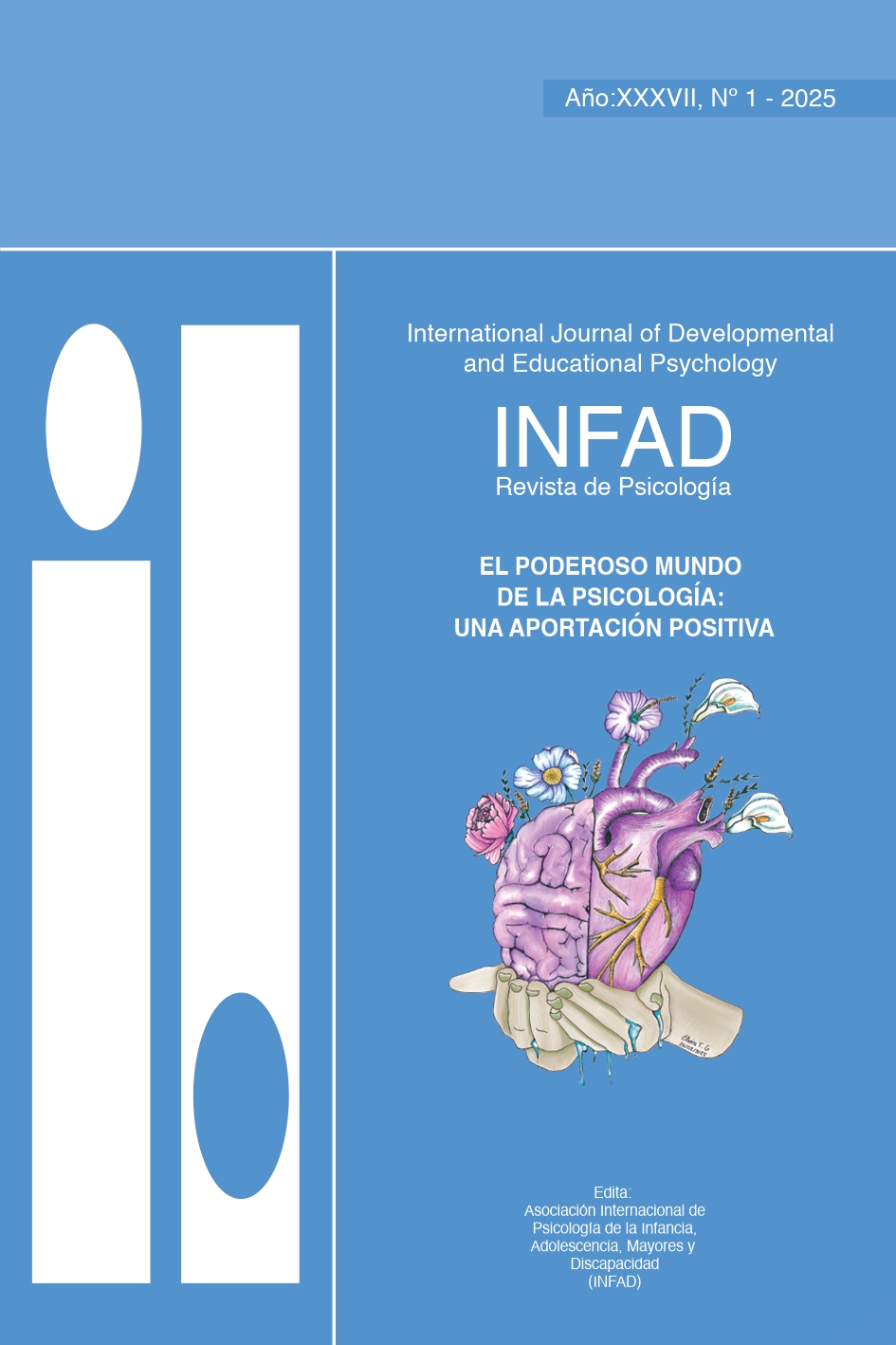Play as a mediaton of emotional bonding between parents and children in human mobility
Main Article Content
Abstract
This research explores the role of play as a mediator in consolidating and strengthening the emotional bond between parents and children in situations of human mobility. Using a qualitative methodology, the playful interaction of 18 dyads composed of primary caregivers and children aged 0–5, temporary residents of the Carmen Serdán Migrant Integration Center (CIM) in Tijuana, Baja California, was analyzed using the Observational Record of Play between Dyads. The results show that play creates a safe space for the expression of emotions and thoughts, as well as for establishing emotional bonds based on reciprocity and emotional attunement. During the play sessions, distinct parenting styles were identified, with a predominance of peer and teacher roles. The constant expression of affection, active attention to children’s well-being, and a willingness to provide emotional support for children were consolidated as key elements in strengthening the emotional bond. From the above, it is concluded that play offers effective strategies to promote emotional containment and comprehensive development in early childhood.
Article Details
Section

This work is licensed under a Creative Commons Attribution-NonCommercial-NoDerivatives 4.0 International License.
Attribution — You must give appropriate credit, provide a link to the license, and indicate if changes were made. You may do so in any reasonable manner, but not in any way that suggests the licensor endorses you or your use.
NonCommercial — You may not use the material for commercial purposes.
NoDerivatives — If you remix, transform, or build upon the material, you may not distribute the modified material.

This work is licensed under a Creative Commons Attribution-NonCommercial-NoDerivatives 4.0 International License
How to Cite
References
Ainsworth, M. D. S., Bell, S. M., & Stayton, D. J. Individual differences in strange situ ation behavior of one- year-olds. In H. R. Schaffer (Ed.), The origins of human social relations. London & New York: Academic Press, 1971.
Asakura, H. (2016). Entramado de emociones, experiencias de duelo migratorio de hijas e hijos de migrantes hondurenos(as). En M. Ariza (coord.), Emociones, afectos y sociologia. Dialogos desde la investigacion social y la interdisciplina (pp. 69-108). Mexico: Instituto de Investigaciones Sociales de la Universidad Autonoma de Mexico. Recuperado de http://ru.iis.sociales.unam.mx/bitstream/IIS/5233/4/emociones_afectosc.pdf
Bowlby, J (1969). Attachment and loss: attachment. Vol. 1. New York: Basic.
Benlloch S. (2020). Teoría del apego en la práctica clínica: Revisión teórica y recomendaciones. Revista de psicoterapia, 31 (No. 116), 169-189. . https://doi.org/10.33898/rdp.v31i116.348
Cordero G. (2022). El vínculo afectivo en la infancia como base para el desarrollo global de la persona. Revista Verdad Activa, Año 2 (Número 1), 183-198. ISSN: 2789-7907. https://revista.usalesiana.edu.bo/verdad_activa/article/view/79
Gallardo J., & Gallardo P. (2018). Teorias sobre el juego y su importancia como recurso educativo para el desarrollo integral infantil. Revista Educativa Hekademos, 24, Ano XI, [41-51]. ISSN: 1989-3558. https://dialnet.unirioja.es/servlet/articulo?codigo=6542602
Gutierrez Rodriguez, N., Alvarez Lorenzo, M. y Rodrigo Lopez, M.J. (2022). Efectos de la migracion en el ejercicio de la parentalidad desde las voces de las familias latinoamericanas en Canarias. Alternativas. Cuadernos de Trabajo Social, 29 (2), 282-308. https://doi.org/10.14198/ALTERN.20323
Hernández, R. (2023). Metodología de la investigación. Las rutas cuantitativa, cualitativa y mixta. 2ª edición. Mac Graw Hill.
Jaramillo-Valencia, B., Largo-Tapasco, S. & Gomez-Monsalve, L. (2020). Sobre el vinculo afectivo y los procesos de aprendizaje en ninos de 7 a 9 anos de edad. Educacion y Humanismo, 22(38), 1-19. DOI: https://doi.org/10.17081/eduhum.22.38.3552
Khanam, S. J., & Khan, M. N. (2023). Effects of parental migration on early childhood development of left-behind children in Bangladesh: Evidence from a nationally representative survey. PLOS ONE , 18 (11), e0287828. https://doi.org/10.1371/journal.pone.0287828
Majumdar, A. (2020). ROLE OF PLAY IN CHILD DEVELOPMENT. International Journal of Technical Research & Science , Volúmen 05 (04), 9–16. https://doi.org/10.30780/IJTRS.V05.I04.002
Olaya, M., Cardenas, M., Alamo, N. y Tesch, L. (2023). Las emociones en el proceso de crianza en contexto de migracion internacional. Si Somos Americanos. Revista de Estudios Transfronterizos, 23 , 1-25. https://www.scielo.cl/pdf/ssa/v23/0719-0948-ssa-23-7.pdf
Ortiz D., & Baildal R. (2024). El impacto del apego temprano en el desarrollo social y emocional en la primera infancia. Ciencia y Educación, Volumen 5 (No.12), 6-16. https://www.cienciayeducacion.com/index.php/journal/article/view/zenodo.14279549
Perez Contreras, B. y Arrazola, E. T. (2013). Vinculo afectivo en la relacion parento-filial como factor de calidad de vida. Tendencias & Retos , 18 (1), 17-32. https://dialnet.unirioja.es/servlet/articulo?codigo=4929410
Valencia, E. & Moreno, N. (2024). La migración y sus efectos multidimensionales en la familia transnacional. Migraciones Internacionales, Vol. 15 (Art. 14), 1-21. e-ISSN 2594-0279 https://doi.org/10.33679/rmi.v1i1.2805.
Vygotsky, L. S. (1982). El juego y su funcion en el desarrollo psiquico del nino. Cuadernos de Pedagogia , 85, 39-48 (Version castellana de la conferencia dada por Vygotsky en el Instituto Pedagogico Estatal de Hertzsn en 1933, Leningrado).

